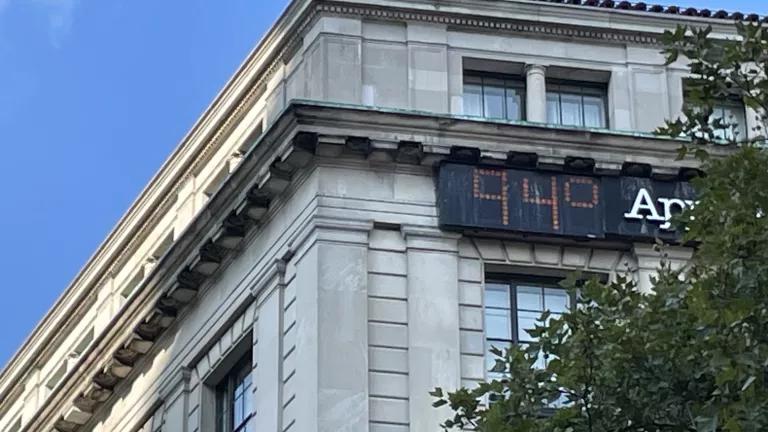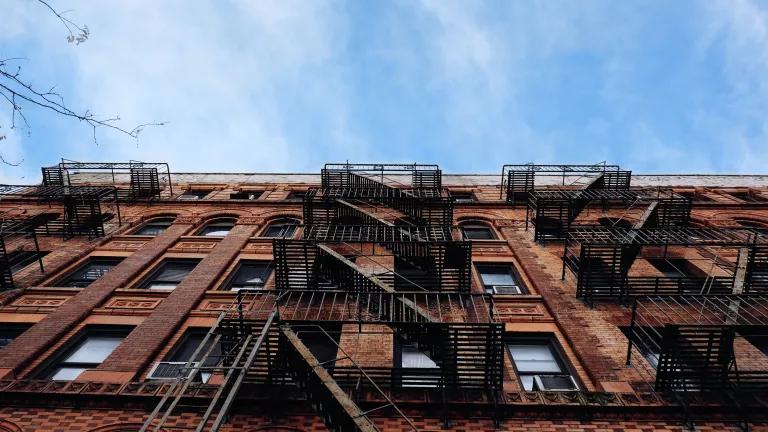NYC Parks Commissioner Pushing Out Community Composters
Neighborhood non-profit groups that have run successful and beloved community composting operations on parks properties for years are being ousted by New York City Parks Commissioner Mitchell Silver.

NYC Parks Department is evicting the Lower East Side Ecology Center’s community composting operation, which educates kids about nature and reduces global warming emissions.
Neighborhood non-profit groups that have run successful and beloved community composting operations on parks properties for years are being ousted by New York City Parks Commissioner Mitchell Silver.
Commissioner Silver’s decision runs directly counter to the De Blasio Administration’s ambitious global warming reduction goals and its pledge to send “zero” waste to landfills by 2030.
The issue is an important one since food waste that is not composted almost always ends up in landfills (where it breaks down and generates methane, a potent climate-altering gas) or incinerators (where it contributes to additional air pollution emissions, often in overburdened communities of color).
Among the non-profit groups under attack is the Lower East Side Ecology Center, which has operated its community composting and education program in East River Park for more than two decades.
Over this period, it has attracted local residents into the park with free educational programming, introduced young people to nature, and processed tons of food scraps, leaves and wood chips into finished compost that it has distributed to the public and the Parks Department itself.
Also on the chopping block is the composting operation of another terrific non-profit organization, Big Reuse. In 2011, Big Reuse transformed a small, derelict Parks property under the Queensboro Bridge in Long Island City into a modern community composting and educational site.
In 2019 alone, Big Reuse brought in almost 1,000 volunteers to help beautify the site, learn about composting and distribute compost to community groups, while assisting the Parks Department by accepting leaves and yard waste from Parks properties at no cost.
But earlier this year, the Parks Department sent word to both groups that their licenses to operate at these locations would not be renewed and they would have to pack up and leave.

Big Reuse’s community composting has converted derelict space under Queensboro Bridge into an environmental gem. But Parks Department officials want the space for a parking lot.
The Parks Department’s decision to evict these two composting groups—and to discourage community composting at other Parks locations—represents a reversal of the Department’s own policy.
Indeed, the Department’s 2011 Sustainability Plan offered a ringing endorsement for expanding composting on parks properties. The plan committed the Department to “increase the efficiency of its leaf composting program” and “[i]ncrease capacity for small-scale composting.” A Plan for Sustainable Practices Within New York City Parks (2011) at 1, 22,24.
Now, however, the Parks Department is changing its tune. To justify their flip-flop, Parks officials are insisting that a 2013 lower court case leaves them no choice. The judge in that case, Raritan Baykeeper v. City of New York, ordered the closure of a Sanitation Department composting facility that occupied 20 acres of Spring Creek Park in southern Queens. The court based its decision on the alienation doctrine, which is designed to prevent the transfer of parkland to non-park purposes.
But the facts in the Spring Creek case compared to those at the LES Ecology Center and Big Reuse sites are as different as day and night:
- the Spring Creek site was more than 20 times larger than the either the LES or Big Reuse composting operations (both of which are an acre or less in size);
- the Spring Creek facility was described by the court as “an unsightly industrial operation,” which the well-maintained, people-friendly LES and Big Reuse sites certainly are not;
- the Spring Creek operation “generate[d] noise and odors to the surrounding community,” while the two community composting sites at issue here have been good neighbors and enjoy strong local support; and
- the Spring Creek facility composting works—by virtue of its size, scope and operation—constituted a non-park use of parkland, whereas the two community composting sites, which bring people into the parks and teach kids about nature, are consistent with park purposes.
Thus, the Spring Creek ruling should simply not be an impediment to the kind of small-scale composting operations long practiced by these two groups on city parkland.
The Parks Commissioner’s decision to push out these two composting programs puts Mayor Bill de Blasio in an awkward position
The de Blasio Administration began with great promise on this issue. On the day she was sworn in, former Sanitation Commissioner Kathryn Garcia pledged to make the Sanitation Department a national leader on composting and sustainability.
But, in a major blow, City Hall eliminated curbside composting collections this past Spring, in the wake of the COVID pandemic.
And the Mayor has not announced plans for the Department to resume separated food waste collections, despite the continuing desire of Acting Sanitation Commissioner Ed Grayson to do the right thing.
The City Council will be holding a hearing on the issue this week. Thanks to Councilmembers Antonio Reynoso, Peter Koo and Speaker Corey Johnson for that.
Mayor de Blasio can advance his forward-looking climate and waste policy goals by directing his Parks Commissioner to allow these two wonderful composting groups to continue serving parks-goers and their communities.




